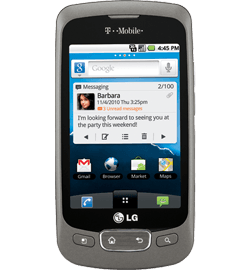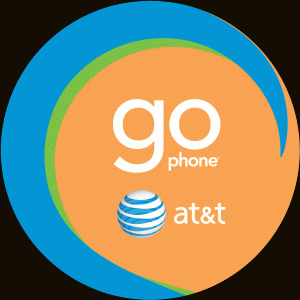 A new proposal from the nation’s six largest telephone companies would double or triple Universal Service Fund (USF) fees on many telephone lines, extending them to wireless, broadband-based phones, cable TV “digital phone” products, and potentially even Internet accounts, providing billions from consumers for the companies proposing the plan.
A new proposal from the nation’s six largest telephone companies would double or triple Universal Service Fund (USF) fees on many telephone lines, extending them to wireless, broadband-based phones, cable TV “digital phone” products, and potentially even Internet accounts, providing billions from consumers for the companies proposing the plan.
Universal Service Fund reform has been a hot topic this year in Washington, as regulators attempt to reform a long-standing program designed to help keep rural landline telephone service affordable, subsidized with small charges levied on customer phone bills that range between $1-3 dollars, depending on the size of your community.
The original goals of the USF have largely been achieved, and with costs dropping to provide telephone service, and ancillary services like broadband DSL opening the door to new revenue streams, some rural phone companies don’t need the same level of support they received in earlier years. As a result, USF funds have progressively been disbursed to an increasing number of projects that have little to do with rural phone service. Several funding scandals over the past decade have underlined the need for USF reform, and FCC Chairman Julius Genachowski has been a strong advocate for directing an increasing amount of USF resources towards rural broadband deployment projects.
But now some of America’s largest phone companies want to establish their own vision for a future USF — one that preserves existing funding for rural phone service –and– levies new fees on ratepayers to support broadband expansion.

The ABC Plan's chief sponsors are AT&T...
America’s Broadband Connectivity Plan (ABC), proposed jointly by AT&T, Verizon, CenturyLink, Windstream, Frontier Communications and FairPoint Communications, departs markedly from Genachowski’s vision for a revised USF that would not increase the overall size of the Fund or its cost to consumers.
That’s why some ratepayer consumer groups and utility regulators have taken a dim view on the phone companies’ plan.
Colleen Harrell, assistant general counsel to the Kansas Corporation Commission says customers would find USF fees doubling, if not tripling on their home phone bills under ABC. That could mean charges of $6 or more per month per phone line.
While the plan substantially benefits the companies that propose it, critics say ABC will do little to enhance service for ordinary consumers. In fact, some language in the proposal could open the door for landline companies to discontinue universal landline service, a long time goal of AT&T.
In fact, protection for incumbent phone companies seems to be the highest priority in most of the ABC’s framework:
- The proposal provides a right of first refusal to the incumbent phone company, meaning USF grant funds effectively start at the landline provider, and are theirs to accept or reject. This has competitors howling, ranging from Wireless ISPs, mobile data providers, cable companies, and even fiber networks. The ABC proposal ignores who can deliver the best broadband most efficiently at the lowest price, and is crafted instead to deliver the bulk of funding to the provider that has been around the longest: phone companies.
- Provisions in the ABC Plan provide a convenient exit door for landline providers saddled with providing service to some of America’s most rural communities. An escape clause allows “satellite service” to be provided to these rural households as a suitable alternative to traditional wired service, sponsored by an annual $300 million Advanced Mobility/Satellite Fund. This, despite the fact consumer ratings for satellite providers are dismal and existing providers warn their services are often unsuitable for voice calls because of incredibly high latency rates.
- Provisions in the ABC Plan adhere to a definition of acceptable broadband well within the range favored by telephone company DSL providers — 4Mbps. Setting the bar much higher could force phone companies to invest in their networks to reduce the distance of copper wire between their offices and customer homes and businesses, allowing for faster speeds. Instead, lowering the bar on broadband speeds assures today’s deteriorating rural landline network will make-do, leaving a rural/urban speed divide in the United States.
- To “resolve” the issue of the increased fees and surcharges that could result from the plan’s adoption, it includes a subjective cap of $30 a month on residential basic landline home phone service (without calling features). But since most ratepayers pay substantially less for basic home phone service, the maximum rate cap provides plenty of room for future rate increases. Also, nothing precludes phone companies from raising other charges, or creating new “junk fees” to raise rates further, ignoring the “cap.”

...and Verizon
Rural states seem unimpressed with the phone companies’ proposal. The Kansas Corporation Commission (KCC) called various provisions of the plan “a train wreck.” Kansas is one of several states that developed their own state-based Universal Service Fund to help the state’s many rural agricultural areas receive acceptable telecommunications services. Kansans initially paid one of the highest USF rates in the country when their state plan was enacted in 1996. But Kansas phone companies used that money to modernize their networks, especially in rural communities — some of which now receive fiber-based phone service, and the rates have fallen dramatically as upgrade projects have been completed. Today, most Kansans pay just $1.45 in USF fees to rural phone companies, while AT&T customers in larger Kansas towns and cities pay an average of $2.04.
If the ABC Plan is enacted as-is, Kansans will see phone bills spike as new USF fees are levied. That’s because the federally-based USF Fund reform program would require today’s 6.18% state USF rate double or triple to sustain various programs within its scope.
And forget about the $30 ‘smoke and mirrors’ “rate cap”, according to the KCC:
[…] The ceiling will not preclude carriers from increasing the basic rate beyond $25 or $30 through higher state USF surcharges or higher local rates. Multiple states including Kansas have partially or totally deregulated basic local phone service rates, and the only component of retail local service pricing that the FCC regulates is the federal Subscriber Line Charge. Thus, a carrier may face no constraint whatsoever in increasing basic local rates to the point that total local rates are well above the illusory ceiling.
 The state of Wyoming was also unimpressed with a one-size-fits-all national approach advocated primarily by big city phone companies AT&T and Verizon, the chief sponsors of the ABC Plan.
The state of Wyoming was also unimpressed with a one-size-fits-all national approach advocated primarily by big city phone companies AT&T and Verizon, the chief sponsors of the ABC Plan.
The Wyoming Public Service Commission filed comments effectively calling the ABC Plan boneheaded, because it ignores the plight of particularly rural states like Wyoming, chiefly served by smaller phone and cable companies that face challenges in the sparsely populated, mountainous state.
First among the Wyoming PSC’s complaints is that the plan ignores business realities in rural states. No matter how much USF funding becomes available or what compensation schemes are enacted, dominant state phone companies like CenturyLink are unlikely to “invest in broadband infrastructure unless it is economically opportune to do so.”
The PSC points to the most likely outcomes if the ABC Plan is enacted:
- Phone companies not challenged by a broadband competitor will make due with their current copper wire wireline infrastructure the PSC says has been deteriorating for years. The PSC fears broadband expansion funds will be used to improve that copper network in larger areas where cable competition exists, while the rest of the more-rural network gets ignored;
- In areas like larger towns or suburbs where phone companies suspect a cable (or other) competitor might eventually expand or launch service, USF funding could be spent to bolster the phone company’s existing DSL service to deter would-be competitors from entering the market;
-

We'll pass, too.
The Wyoming PSC believes phone companies will spend broadband funds only where it would improve the phone company’s competitive position with respect to cable competitors. Providers are unlikely to expand into currently-ignored rural areas for two reasons: lack of ongoing return on investment and support costs and the ABC Plan’s willingness to abandon rural America to satellite providers. “We are familiar to a degree with satellite service at it presently exists in Wyoming markets, and we are not particularly enamored of the satellite solution,” the PSC writes. But if adopted, no rural phone company would invest in DSL service expansion in areas that could be designated to receive federally-supported satellite service instead.
Wireless competitors are not happy with the ABC Plan because it ignores Wireless ISPs and sets ground rules that make them unlikely to ever win financial support. Many also believe the ABC Plan picks technology winners and losers — namely telephone company provided DSL service as the big winner, and everyone else a loser.
The Fiber to the Home Council also heaped criticism on the ABC Plan for the low bar it sets — low enough for any phone company to meet — on broadband speeds. The FTTH Council notes the ABC Plan would leave rural America on a broadband dirt road while urban America enjoys high-speed-rail-like service.
Coming Next… Who Really Supports the Phone Companies’ ABC Plan.


 Subscribe
Subscribe












